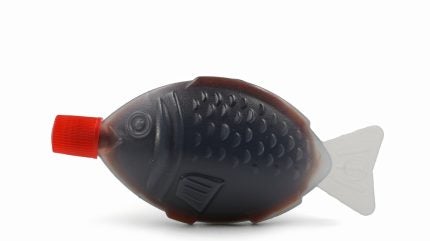
South Australia has outlawed fish-shaped soy sauce bottles from Monday, 1 September 2025, in a move officials say will cut single-use plastic waste and protect marine life.
The new rule, part of the wider South Australia plastic ban, applies to miniature condiment containers holding less than 30 millilitres and is framed as a response to litter that is hard to recycle and easy to lose to the environment.

Discover B2B Marketing That Performs
Combine business intelligence and editorial excellence to reach engaged professionals across 36 leading media platforms.
Why fish-shaped soy sauce bottles were targeted
State officials said the tiny “soy sauce fish” are frequently dropped, blow away or wash into drains, where they may reach waterways and be mistaken for food by marine animals.
Even when disposed of correctly, they are often too small for recycling sorters and end up in landfill or as fugitive plastic.
The measure singles out both fish-shaped and rectangular mini bottles with lids, caps or stoppers under 30 ml, steering businesses towards larger refillable dispensers, squeezable packs, sachets or certified compostable options.
What the South Australia plastic ban covers now
The latest expansion also bans utensils or straws attached to food items, such as plastic-wrapped straws on juice boxes.

US Tariffs are shifting - will you react or anticipate?
Don’t let policy changes catch you off guard. Stay proactive with real-time data and expert analysis.
By GlobalDataIt builds on a programme that began in 2009 when South Australia became the first Australian state to ban single-use plastic shopping bags, followed since 2021 by restrictions on plastic cutlery, plastic straws, many takeaway containers and some single-use coffee cups.
Enforcement sits with the state’s Environment Protection Authority, with penalties ranging from warnings to prosecution for breaches.
A plan to prohibit small produce stickers on fruit and vegetables—another single-use plastic—has been delayed after industry raised cost and supply-chain concerns.
Global context: single-use plastic bans and treaty setback
Moves to curb plastic pollution are spreading worldwide. New Zealand introduced a nationwide ban on thin plastic produce bags in supermarkets in 2023, while Lagos, Nigeria, adopted a prohibition on certain single-use items in July 2025 with mixed results.
Despite these steps, the United Nations Environment Programme estimates the equivalent of around 2,000 refuse trucks of plastic enter oceans, rivers and lakes each day, and about 85% of single-use plastic packaging is landfilled or mismanaged rather than recycled.
Efforts to finalise a binding global plastics treaty collapsed in August 2025 without agreement, with some oil-producing states resisting limits on plastic production.
What this means for diners and businesses
For customers, soy sauce is likely to arrive in larger shared bottles, refillable table dispensers or sealed sachets rather than the small fish-shaped containers familiar at sushi bars and takeaway counters.
Food operators in South Australia will need to source compliant alternatives and review packaging to ensure it meets the single-use plastic ban.
The government argues these changes are intended to reduce litter, cut clean-up costs and keep plastics out of waterways, aligning local rules with a broader shift to reduce plastic pollution.





